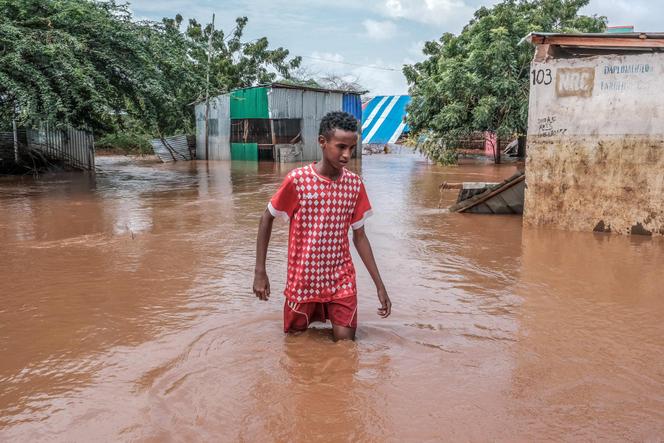

LETTER FROM AFRICA

In May, flooding and landslides caused by torrential rains around Lake Kivu, on the border between Rwanda and the Democratic Republic of Congo, claimed at least 600 lives. When the World Weather Attribution, an international network of researchers who study the influence of human activity on extreme weather events, wanted to look into this disaster a few weeks later, they found themselves "at a loss," according to Friederike Otto, one of its co-founders and a climatologist at Imperial College London. "Because of a lack of data, we weren't even able to say how much rain had fallen, where and when."
The incident illustrates one of the shortcomings suffered by the continent most exposed to the consequences of climate disruption: the lack of meteorological information. At a time when the 28th United Nations Climate Change Conference (COP28), which begins on Thursday, November 30 in Dubai, is due to discuss the creation of a loss and damage fund to provide financial assistance to countries that are vulnerable to climate change, "how will they be able to estimate the damage they have suffered if they don't have the means to observe and measure it?" asked Otto.
According to the World Meteorological Organization (WMO), Europe and the United States combined – a population of 1.1 billion and 20 million square kilometers – have 636 weather radars, an essential tool for tracking precipitation. Africa, with its 1.3 billion inhabitants and 30 million square kilometers, has just 37.
"Despite covering a fifth of the world's total land area, Africa has the least developed land-based observation network of all continents, and one that is in a deteriorating state," warned the WMO in a report published in 2019. On a continental scale, weather stations designed to record temperature, humidity, barometric pressure and wind intensity are too scattered or in poor condition: In sub-Saharan countries, barely 20% provide reliable service.
However, "thanks to satellites, Africa is not exactly lacking in climate data," pointed out Brice Montfraix, an expert with the Global Monitoring for Environment and Security and Africa Support Program, a joint initiative of the European Union and the African Union that enables the continent to use images from European Space Agency satellites such as Sentinel. Montfraix said that "what is lacking is the means to verify and interpret these data, to transform them into useful information, since capacities in terms of ground equipment and expertise within meteorological services are generally too deficient, depending on the country."
You have 50% of this article left to read. The rest is for subscribers only.
